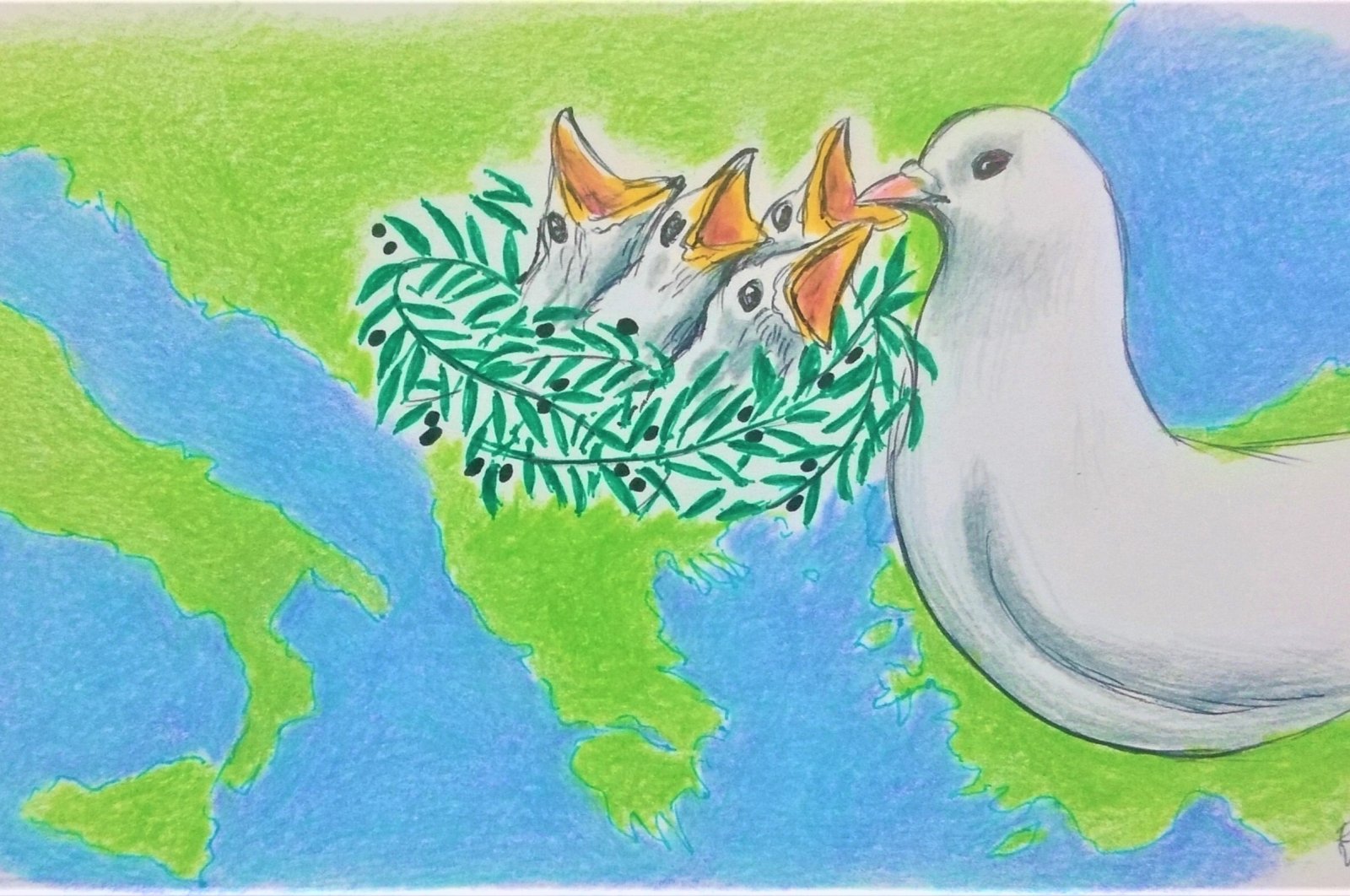
Türkiye plays a pivotal role in ensuring permanent peace in the Balkans through skilled and successful humanitarian, entrepreneurial diplomacy and convincing leadership of Erdoğan
Since the outbreak of the Russia-Ukraine War, the geopolitical significance of the Balkan region has increased notably. The attainment of lasting peace in the Balkans is crucial to prevent the ongoing war in Ukraine from spreading further into Europe and expanding its sphere of influence.
Türkiye plays a pivotal role in ensuring this permanent peace in the Balkans through its skilled and successful approach to humanitarian and entrepreneurial diplomacy, under the determined, effective, sincere, and convincing leadership of President Recep Tayyip Erdoğan. As Türkiye strengthens its presence in the global and regional economy, it solidifies its position among the top 20 countries in the world, thereby inspiring and leading the Balkan region.
The strategy of "looking out for the Balkans," which gained momentum during the 1980s under the late president and prime minister of the Republic of Türkiye, Turgut Özal, remains highly relevant today. Türkiye's humanitarian efforts to protect its compatriots forced to migrate from Bulgaria and the inspiring story of Naim Süleymanoğlu, a multiple World and Olympic weightlifting champion, are indicative of the dynamic, effective, constructive, and embracing approach of Türkiye's economy, trade, and political diplomacy.
This approach holds even greater significance today, given the need for cooperation among countries in the Balkans like Bosnia-Herzegovina, North Macedonia, Serbia, Croatia, Kosovo, and Albania. These countries' relations rely on delicate balances, and Türkiye's involvement can help ensure internal peace among different identities within each nation. Additionally, Türkiye's guiding role in the Balkans is instrumental in reshaping the region's fate, particularly in terms of global and regional energy, agri-food, transport logistics, supply security and network.
Exponential risks
Looking ahead, the world economy will face exponential risks concerning agri-food and energy supply security due to the growing global population. The Balkans can play a crucial role in addressing these challenges through new investment moves, fostering global and regional economic development, and ensuring agriculture-food supply security, energy supply security, and supply chain security. Collaborative projects in digitalization, e-services, software, and hardware supply can further enhance the region's potential. Moreover, the Balkans can serve as a significant logistics network to meet the needs of emerging Africa in the present and future.
In this transformative process, Türkiye's leadership in joint projects plays an indispensable role in changing the narrative of the Balkans and promoting permanent peace in the region. Countries like Hungary, which share common historical ties and believe in a common future and cooperation with Türkiye, can be important partners in this endeavor. It is essential to include Bulgaria and Romania in this process as well to strengthen regional cooperation and prosperity.
Through meaningful contributions and partnerships with these countries, Türkiye can bolster the global and regional role of the Balkans, fostering stability, prosperity, and lasting peace in the region.
Recognizing the fundamental truth in the Balkan region, it is evident that a strong and stable Türkiye holds the key to changing the "unfortunate fate" of this geography. Over the past two decades, Türkiye's growing influence in global politics and the global economy, along with its projects aimed at fostering positive change in the Balkans and addressing the declining population, provide significant hope for these countries.
Furthermore, fostering cooperation with Greece in the medium and long term, without certain obstacles in the global order, would enable Türkiye to expand its production, supply, export, investment, and financing capabilities across the Balkans, ultimately reshaping the region's unfortunate fate. The success of Halkbank in Serbia and North Macedonia stands as a prime example of this positive trend.
Additionally, increased joint projects focusing on road, rail, sea, and air logistics will pave the way for Türkiye to assume leadership in interconnecting Asia, Europe, and Africa through the Balkans. Türkiye can further solidify its position as a key player in the region by facilitating efficient transportation and trade routes.
In the foreseeable future, Türkiye's commitment to fostering permanent peace in the Balkan region will continue to grow exponentially. Building upon its previous efforts and accomplishments, Türkiye will further strengthen its contributions in pursuit of lasting stability and prosperity in the region. Through diplomatic initiatives, economic partnerships, and collaborative projects, Türkiye will actively work toward bridging divides, promoting dialogue, and resolving conflicts. By engaging with the Balkan countries and leveraging its influence, Türkiye will play a pivotal role in shaping a peaceful future for the region.
